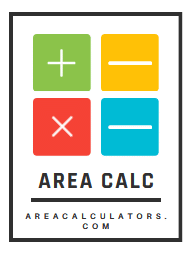You know your device runs at 100 watts. But how much energy does it actually use over time?
That’s what the Watts to Energy Calculator answers. It shows how power (watts) converts into actual usable energy — in joules, kilojoules, or kilowatt-hours — based on how long the device runs.
This tool is perfect for checking electricity usage, estimating energy bills, or simply understanding how much power your appliances or systems consume over time.
Let’s break it down — in plain language, for practical use.
What Is Watts to Energy Conversion and Why It Matters
Watts (W) measure the rate of energy use — how fast something uses energy.
But energy itself is measured in joules (J) or kilowatt-hours (kWh) — the total amount used over time.
So, if you leave a 100-watt bulb on for 1 hour, it uses energy. This calculator tells you how much.
Why it matters:
⚡ Understand real energy consumption
💰 Estimate your electric bill with real numbers
🔋 Calculate battery or generator energy output
📊 Track usage in labs, workshops, and homes
🌱 Identify ways to reduce waste and save energy
This tool turns a simple wattage into real-world energy insight.
Formula and Variables
Energy = Power × Time
Depending on your input units, this gives energy in joules, kilojoules, or kilowatt-hours.
📊 Variable Table
| Variable | Meaning |
|---|---|
| Power (W) | Rate at which energy is used (in watts) |
| Time (s or h) | Duration the device runs (seconds or hours) |
| Energy (J/kWh) | Total energy consumed |
Example: How to Convert Watts to Energy
Let’s say you have:
-
A heater that uses 2000 W (2 kW)
-
It runs for 3 hours
Using the formula:
Energy = Power × Time
Energy = 2 kW × 3 hours = 6 kWh
That’s the same as:
6 kWh × 3,600,000 = 21,600,000 J
Result: The heater used 6 kilowatt-hours or 21.6 million joules of energy.
You can use this number to estimate cost or battery size needed.
How to Use the Watts to Energy Calculator
-
Enter the power in watts (or kilowatts)
-
Input the time — in seconds, minutes, or hours
-
Click calculate
-
Get the total energy used in joules, kilojoules, or kilowatt-hours
Great for home appliances, electronics, or solar systems.
Where This Calculator Is Used in Real Life
💡 Home electricity tracking – see how much energy devices use
🔌 Electronics testing – compare energy draw over time
🔋 Battery storage – match power needs with storage capacity
🏠 Solar systems – calculate solar panel output
⚙️ Engineering labs – monitor machine usage
💰 Bill estimation – estimate power bill for any device
If it runs on power, this calculator can tell you the energy cost.
Tips for Accurate Results
✅ Always match units: hours × kW = kWh; seconds × W = joules
✅ 1 kWh = 1,000 watts × 3600 seconds = 3.6 million joules
✅ Use decimal values (e.g., 1.5 hours = 90 minutes)
✅ Double-check the power rating on device labels
✅ Convert watts to kilowatts when needed: W ÷ 1000 = kW
Knowing energy = understanding usage = saving money.
Common Mistakes to Avoid
❌ Confusing watts with watt-hours — one is power, the other is energy
❌ Using wrong time units (hours vs. minutes vs. seconds)
❌ Forgetting to convert watts to kilowatts (or vice versa)
❌ Overlooking device standby time — small power adds up over long periods
❌ Relying on average power — always use actual rated power for accuracy
Avoid these, and your results will be spot on.
FAQs:
1. What is the difference between watts and energy?
Watts measure power (rate of energy use). Energy measures how much was used over time (joules or kilowatt-hours).
2. What unit will this calculator give me?
Depending on your input, you'll get energy in joules (J), kilojoules (kJ), or kilowatt-hours (kWh).
3. How do I calculate energy for multiple devices?
Use the calculator for each device, then add up their energy totals.
4. Is this calculator useful for solar panels?
Yes! You can track how much energy panels produce or how much energy you consume.
5. What’s a typical household device watt rating?
Bulbs: 10–100 W, Heaters: 1000–2000 W, TVs: 50–200 W, Fridges: 150–300 W.
6. Can I estimate electricity bills with this?
Absolutely. Multiply the kWh result by your local electricity rate (e.g., $0.12 per kWh).
Conclusion:
The Watts to Energy Calculator makes power data useful. With just watts and time, it shows exactly how much energy was consumed.
Whether you're trying to lower your energy bill, size a solar battery, or monitor machine usage — this tool keeps things simple and accurate.
No formulas to memorize. No guesswork. Just real, usable results in seconds.
